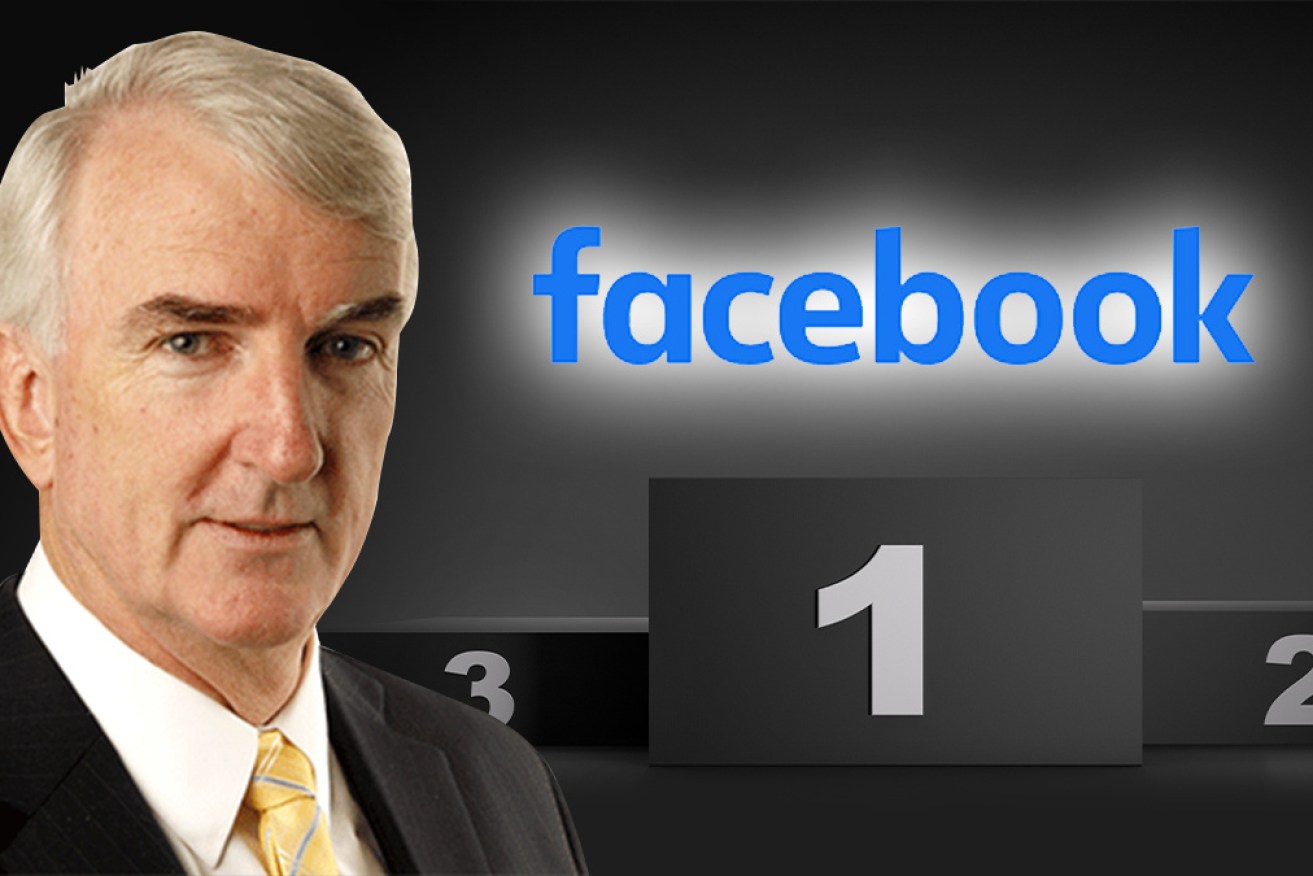Michael Pascoe: Josh Frydenberg sure got Zucker punched in this tech-giant fist fight


In the podium finish in the fight for our media dollar, there's one clear winner, Michael Pascoe says.
If I was a cartoonist instead of a journalist, I’d be drawing a bashed and bruised Josh Frydenberg with black eye, stitches and Band-Aids, saying “You should see the other guy” while a gleaming and unscathed Mark Zuckerberg sits in the background, filing his nails, not having raised a sweat.
And thus, with a picture worth a thousand words, my column for the day would be done.
Not that the cartoon would make any sense to people who relied on the nation’s mainstream media for their information on the government’s media code, alias the Australian political establishment’s shakedown of Google and Facebook for its media mates – Murdoch’s News Corp, Nine Entertainment and Kerry Stokes’ Seven West Media.
According to the vast majority of Australia’s newspapers and commercial broadcasters, the federal government and its loyal opposition have fought and won a mighty battle for Australia’s “sovereignty” – whatever that is.

Josh Frydenberg should be feeling pretty sore – whether he knows it or not.
Our parliament allegedly has shown the tech giants Google and Facebook exactly who is boss in this country, had them shaking in their boots, whipped ‘em good and taken them to the cleaners for the greater glory of public interest journalism.
And that is a load of codswallop.
After all the brave rhetoric, all the Question Time Dorothy Dixers trying to deflect from the Parliament House rape scandal, all the outraged newspaper headlines, the government backed down and gave Facebook pretty much what it wanted to avoid copping an arbitrated decision on paying media companies.
So Google and Facebook will end up paying $100 million or so each – peanuts to them – under the false pretences of “supporting journalism”.
As reported elsewhere, nearly all that money will be gifted to News Corp, Nine and Seven shareholders.
If those companies use some of the cash to fund their news businesses, it will make it even harder for independent and start-up journalism to succeed.
Crikey’s Bernard Keane was ahead of the pack last year in calling out the crooked nature of Australia’s media code proposal, that it was a ruse to extort money primarily at the behest of Murdoch and Nine to make up for Google and Facebook being better at delivering advertising than they are.
(Actually, that’s not correct – there has been no pack to be ahead of. Promised the whiff of a bag of money, journalists and editors employed by Australia’s main newspapers and commercial broadcasters have uniformly run the company line. We’re used to that in Murdochstan, but it has been sadly disappointing to see it copied by the papers-formerly-known-as-Fairfax.)
Tweet from @BernardKeane
When the Armageddon of Facebook pulling news and other pages hit, the MSM ran hard with the outrage, but it was left to Keane to explain that, aside from Facebook’s own stuff up in deleting pages it didn’t mean to, the problem was caused by the breadth of the draft legislation’s definition of “news” that Murdoch’s myrmidons had effectively drafted:
News Corp was broadly happy with the definition but wanted sports and sports-related news content and “social issues” added.
Nine, however, was not happy. It now wanted journalists excluded from the definition on the basis that it “creates an artificial distinction, which does not reflect the way in which that content is valued by consumers”.
It also wanted the ACCC to loosen the definition so that even programs that had only a small amount of news content would be subject to the code, rather than programs that were “predominantly” news.
When the government issued its draft legislation, miraculously, News Corp got the broad definition it wanted, and no requirements for public interest journalism, and Nine got what it wanted — the removal of any requirement to employ journalists to make the content covered under the code.
In doing so, they demonstrated how little this whole scam is about quality journalism.
Keane has again been at work explaining how Mr Frydenberg’s “big win for journalism” has been fake but widely reported news. The government has folded and given Facebook much greater bargaining power.

Zuckerberg must be feeling mighty chuffed to have come out on top in an unfair fight.
Facebook can now remunerate different companies differently and give preferential ranking to one company over another.
There’s now a big window for “mediation in good faith” by Facebook and media companies before any (improbable) arbitration. And:
Just to cement Facebook’s much greater control of the process, the government has now changed the explanatory memorandum for the legislation to make clear what digital platforms the code covers: “This code only applies to the extent a platform is making covered news content available through those services intentionally.”
That’s why Facebook executive Campbell Brown said yesterday that the amendments allowed Facebook to “support the publishers we choose to … the government has clarified we will retain the ability to decide if news appears on Facebook so that we won’t automatically be subject to a forced negotiation”.
Unless Facebook intentionally makes news content available, it is not covered by the code. And you’ll have to do a deal with Facebook for it to intentionally run your content.
In other words, it’s a joke, Joyce – but one that the vast majority of people are not being let in on.
Meanwhile, Nine Entertainment has just reported its December-half results. Despite the damage COVID did to advertising, Nine boosted net profit by 79 per cent to $182 million compared with the same period of pre-COVID 2019.
Revenue was effectively flat at $1.16 billion in the half, but earnings before interest, tax, depreciation and amortisation jumped 42 per cent to $355 million.
Nine’s publishing division revenue fell 9 per cent but EBITDA grew by 27 per cent to $68 million.
And yet to come is the promised money from the tech giants shakedown. As made clear by chairman Peter Costello in the annual report, that will go towards “content” – not necessarily news at all.
Google and Facebook are very large, very nasty, highly manipulative, tax-avoiding monsters – but the media code extortion is simply wrong in principle and practice.









